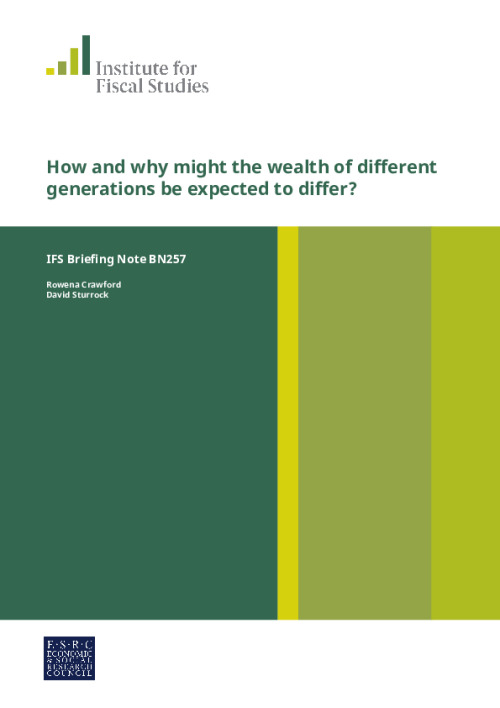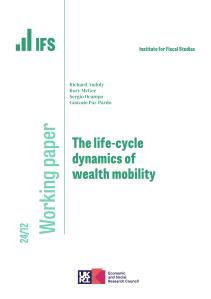While those born between the 1930s and 1950s have seen generation-on-generation increases in wealth levels, those born more recently look to have accumulated no more wealth than their predecessors had done by the same age. This has prompted concerns, and debate as to whether later-born generations are just frivolous with their money or have faced a harsher economic environment that is less conducive to accumulating wealth.
We use an economic model to illustrate how different circumstances – in terms of earnings, the tax system, the state pension system, rates of return, the number and timing of children, longevity and retirement timing – could be expected to affect wealth accumulation. We then bring these circumstances together to illustrate how we might expect the wealth of different generations to differ, even if fundamental attitudes towards saving were the same. In doing so, we provide a new, and important, frame of reference for those comparing empirical data on wealth holdings between generations.
Key findings
- The economic circumstances that individuals face are an important determinant of wealth levels and saving behaviour. Our modelling illustrates that different earnings levels, state pension systems, tax systems, rates of return, longevity and retirement timing all have important impacts on individuals’ expected wealth accumulation. Given these differ between generations, we should not necessarily expect each generation to accumulate the same level of wealth.
- Understanding the drivers of differences (or lack of differences) in wealth levels is important in order to understand the extent to which they are a concern, and what policy action – if any – might be warranted. For example, the response to differences in wealth arising from different earnings levels might not be the same as the response to differences in wealth arising from different rates of return.
- Changes in the economic and demographic conditions that we model would be expected to lead to generation-on-generation increases in the levels of wealth held by retirement. These are largely driven by increased earnings, and also by falling state pension generosity and falling average tax rates, that are not completely offset by falling rates of return. However, at younger ages, the picture is complicated by particular periods of high/low rates of return affecting generations at different ages, and it is not the case that younger generations are consistently simulated to hold more wealth than their predecessors.
- Comparisons of saving rates and replacement rates are ‘safer’, but should still be made with care. Saving rates and (expected) replacement rates are more robust metrics for comparing financial preparedness for retirement between generations, as these are not affected by differences in earnings. However, there are still reasons for these to differ between generations – in particular, different rates of return and state pension generosity. The income replacement rates achieved in retirement by older generations therefore perhaps ought not to be taken as a target to be achieved by generations born more recently. This may be holding younger generations to an inappropriately high ideal.










